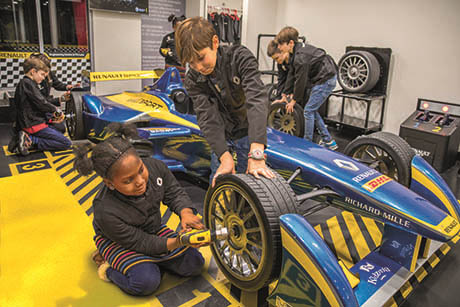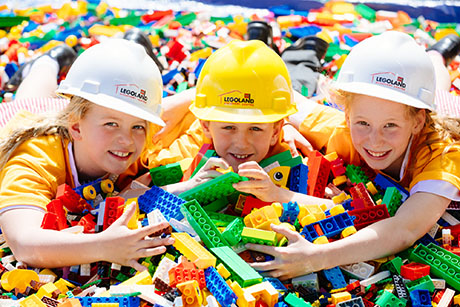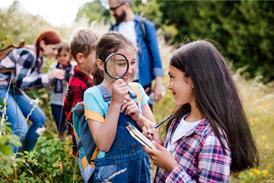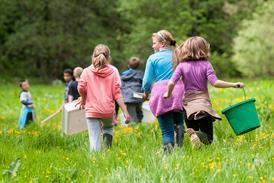An element of play can help to deepen pupils’ learning. So, why is it important and where can you take a school group to?

At the end of May the University of Cambridge appointed a Lego professor of play to its PEDAL department (Play in Education, Development & Learning).
Child psychiatry expert Professor Paul Ramchandani will now lead a team of researchers to examine the importance of play in education.
As part of his role, Ramchandani will establish a long-term project that will look at how children are encouraged to play at both home and school.
“Everyone has an opinion about what role play should have in education and there is some wonderful research, but there are also big gaps in our knowledge,” commented Ramchandani.
“We need the best evidence possible in order to inform the vital decisions that are made about children’s education and development and I look forward to taking that work forward together with colleagues at Cambridge.”
The existing research into the role of play in education suggests that there are strong links between creative play and language, cognitive development, social development and motor skills.
The National Institute for Play claims ‘play is a catalyst for learning at any age’, also stating ’when students have fun at learning, they continue to pursue it for its own sake. At any age, play acts to retain and enhance meaningful context, and optimizes the learning process.”
With this in mind, we look at a handful of school trips that encourage children to play in order to learn and develop their knowledge of a range of subjects and life skills.
KidZania, London
KidZania (pictured above) is a purpose-built mini-city where pupils are encouraged to take on the roles of all sorts of people from society, from record producers to dentists.
School trips here are suitable for children aged four to 14. Activities in the city have been developed by qualified teachers with the National Curriculum in mind, and options range from pretend teeth extraction to cookery.
YHA Spy Academy, various locations
The YHA’s Alex Rider Spy Academy experience was designed to allow pupils to become secret agents in order to develop team work, key skills and a passion for reading. The residential experience can be booked at sites across the country for two or three nights.
Participating pupils are briefed and get to take part in a whole range of activities from rock climbing and raft building to gadget design and code cracking, as they play at being spies.

Legoland Discovery Centre, Manchester
The Legoland Discovery Centre (pictured above) offers Primary pupils the opportunity to take part in hands-on workshops that bring subjects to life, from Maths to Science and Art.
Sessions include Spinning Tops, which is suitable for Year 5 and 6 pupils and gets children working in teams to build a spinning top out of Lego bricks before they complete a range of exercises to learn about forces and data collection.
Another option is an advanced Merry Go Round session, in which pupils learn about gears and ratios.
Rainbow Factory, Leeds
Rainbow Factory specialises in story-telling through creative arts, including theatre, crafts and games. English literature and language can be brought to life in various ways at the attraction.
There’s a creative kitchen, where pupils can play with craft materials to bring elements of a story to life, and a stage area, where children can get hands-on with props and lighting and role play to bring a story to life.
Activity boxes that are designed to encourage imaginative play can be found in the Secret Garden, too.
Royal Gunpowder Mills, Waltham Abbey
School trips are available for Key Stage 1 and 2 at Royal Gunpowder Mills. The attraction offers workshops on a selection of topics from the Home Front to Victorians.
During any given day, and depending on which topic they are studying, children can find themselves taking part in all sorts of activities from building a rocket to playing traditional Victorian parlour games.









